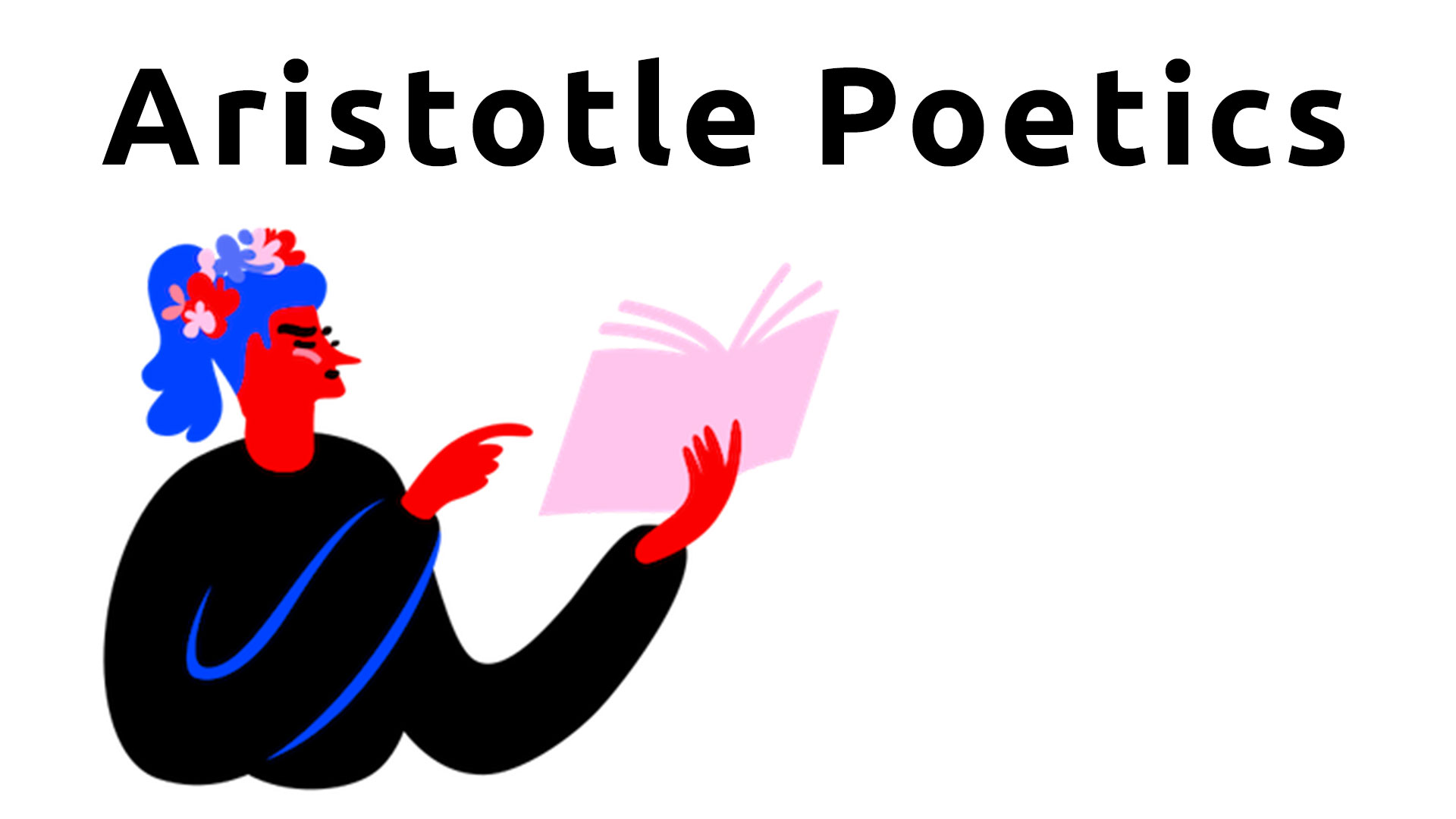I made myself a list of books to study storytelling and screenwriting, logically starting with the first of them, Aristotle’s Poetics. I decided to make an outline of this book from the point of view of a modern scriptwriter. To analyze the main ideas and thoughts, to find their application in my daily blogging activities.

Who is Aristotle?
Aristotle was an ancient Greek philosopher and thinker who lived about 350 B.C., a disciple of Plato and mentor of Alexander the Great; the founder of logic; author of many aphorisms that everyone knows, such as “choose the lesser of two evils” and “knowledge begins with wonder.
Aristotle left many works, and one of them is the Poetics (a treatise on the essence of drama). Aristotle studied the concept of “drama”, meaning a genre of literary work in which there are dialogues and replicas of people. In addition to drama, epic (an account of bygone days in the past based on the author’s memories) and lyric (emotional momentary experiences without a clear vector of the plot line “from and to”) are distinguished.
Drama, epic, lyrics
The Basic Ideas of Aristotle’s Poetics
In order to write interesting scripts, we need to understand the essence of drama, how works are created, so that they are interesting to read and watch. What is the reason why the story captures us and we definitely need to know how it ends. While reading Aristotle’s poetics, I decided to write down the main thoughts that I found relevant and useful-not literal quotations, but rather my interpretation of what I read:
- the hero can be either bad or good
and there is a spectrum from good to bad – and in a work the hero can be better than the viewer or at his level of “goodness,” or the hero can be worse than the viewer (then it will be a comedy or a tragedy);That is, the viewer is the point of reference: he/she evaluates the characters in relation to himself/herself: they are like me, or worse, or better than me; this changes the genre and perception of the work;it is important for tragedy that the hero be generally good, while being close to the reader or slightly worse than him;
-
comedy is the imitation of that which is worse than averagenot every mistake is comedic: the one that is laughable is the one that is partly ugly;the mistake and deformity that does not hurt or harm others is laughable;
-
imitation is natural for humanshumans are the most imitative creature, initially developing by repeating after others;also people delight in imitation, for example, if a person draws a story that is itself violent and painful to look at, people will marvel at the author’s ability to reproduce the picture and simultaneously delight in gaining new experience and knowledge of the world;
- All epic is contained in tragedy, but not everything in tragedy is epic.
- Tragedy is a story in the form of an imitation of the serious, the whole and the large, with incidents that evoke pity and fear, elevated to catharsis
- the characters succeed or lose;
there is a plot – a combination of incidents and events in the story;
there are heroes – the bearers of certain character qualities (the viewer attributes them to the hero on the basis of the story) and thoughts (which the hero voices through lines);Six elements of tragedy:
– plot (the main element!)
– characters
– vocabulary (what the character says and how)
– thoughts (what the character thinks)
– the spectacle (the visuals)
– melody (music) - the heroes are included in the plot of the tragedy for the action, not for the representation of the hero himself
The characters are secondary, the action is primary.
The end of the story is most important! (what’s the point of the story) - the author of the story tells not what happened, but what could have happened and was necessary for the plot (unlike a historical work)
the philosophical essence of fictional stories is that there is a character who is caught up in certain circumstances, and he is extremely likely to do this or that under these initial data… Yes, such a story might not have happened in reality, but if it had, such characters would have behaved in a similar way
- the following unfair plots, which create dissonance, should be avoided in tragedy:
– a good person should not be unlucky (such a failure is odious, but not tragic);
– a bad person should not be accompanied by good luck throughout the story (this is as tragic as possible, does not appeal to humanity, does not evoke pity or fear);
– a very bad person should not roll from good luck to bad luck (this does not evoke pity, since we pity those who are unjustly unlucky; and it does not evoke fear, since we are afraid when we can try the situation on ourselves, i.e., the hero should be like us) -
the best plot for a tragedy: the average hero who suffers a setback not because of his binge lifestyle, but because of his global mistakegood luck alternates with bad luck, and a good tragedy can have a bad ending.
-
we feel more sorry for the heroes if…tragedy happens between close people – friends, relatives, neighbors
- The worst thing for the plot of a tragedy is when a character deliberately intends to do evil, but does not do it-tragicism is completely absent.
- The hero of a successful work must make a choice, and the hero himself must be relatable, resembling reality… and consistent (even if inconsistency is part of his character, he must be consistently inconsistent)
